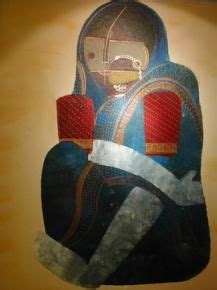A Quote by Siddharth Katragadda
The case for meat-eaters - if eating meat is a sin, then why are some plants carnivorous?
Related Quotes
To avoid causing terror to living beings, let the disciple refrain from eating meat... the food of the wise is that which is consumed by the sadhus [holymen]; it does not consist of meat... There may be some foolish people in the future who will say that I permitted meat-eating and that I partook of meat myself, but... meat-eating I have not permitted to anyone, I do not permit, I will not permit meat-eating in any form, in any manner and in any place; it is unconditionally prohibited for all.
In fact, we would know ourselves that we are not meant to be meat eaters, and we would not have allowed ourselves to become conditioned to meat eating in the first place, if the effects of meat eating were felt right away. But since heart disease, cancer, diabetes, osteoporosis, etc. usually take many years to develop, we are able to separate them from their cause (or contributing factors) and go on happily eating an animal-based diet.
If you like eating meat but want to eat ethically, this is the book for you. From the hard-headed, clear-eyed, and sympathetic perspective of butchers who care deeply about the animals whose parts they sell, the customers who buy their meats, and the pleasures of eating, this book has much to teach. It’s an instant classic, making it clear why meat is part of the food revolution. I see it as the new Bible of meat aficionados and worth reading by all food lovers, meat-eating and not.
Some meat eaters defend meat eating by pointing out that it is natural: in the wild, animals eat one another. The animals that end up on our breakfast, lunch, and dinner plates, however, aren't those who normally eat other animals. The animals we exploit for food are not the lions and tigers and bears of the world. For the most part, we eat the gentle vegan animals. However, on today's farms, we actually force them to become meat eaters by making them eat feed containing the rendered remains of other animals, which they would never eat in the wild.
In my opinion, if most urban meat-eaters were to visit an industrial broiler house, to se how the birds are raised, and could see the birds being "harvested" and then being "processed" in a poultry processing plant, they would not be impressed and some, perhaps many of them would swear off eating chicken and perhaps all meat.
The indifference of children towards meat is one proof that the taste for meat is unnatural; their preference is for vegetable foods...Beware of changing this natural taste and making children flesh-eaters, if not for their health's sake, for the sake of their character; for how can one explain away the fact that great meat-eaters are usually fiercer and more cruel than other men; this has been recognised at all times and in all places.
While self-interest arising from the enjoyment of meat eating is obviously one reason for its entrenchment, and inertia another, a process of language usage engulfs discussions about meat by constructing the discourse in such a way that these issues need never be addressed. Language distances us from the reality of meat eating, thus reinforcing the symbolic meaning of meat eating, a symbolic meaning that is intrinsically patriarchal and male-oriented. Meat becomes a symbol for what is not seen but is always there--patriarchal control of animals and of language.





































